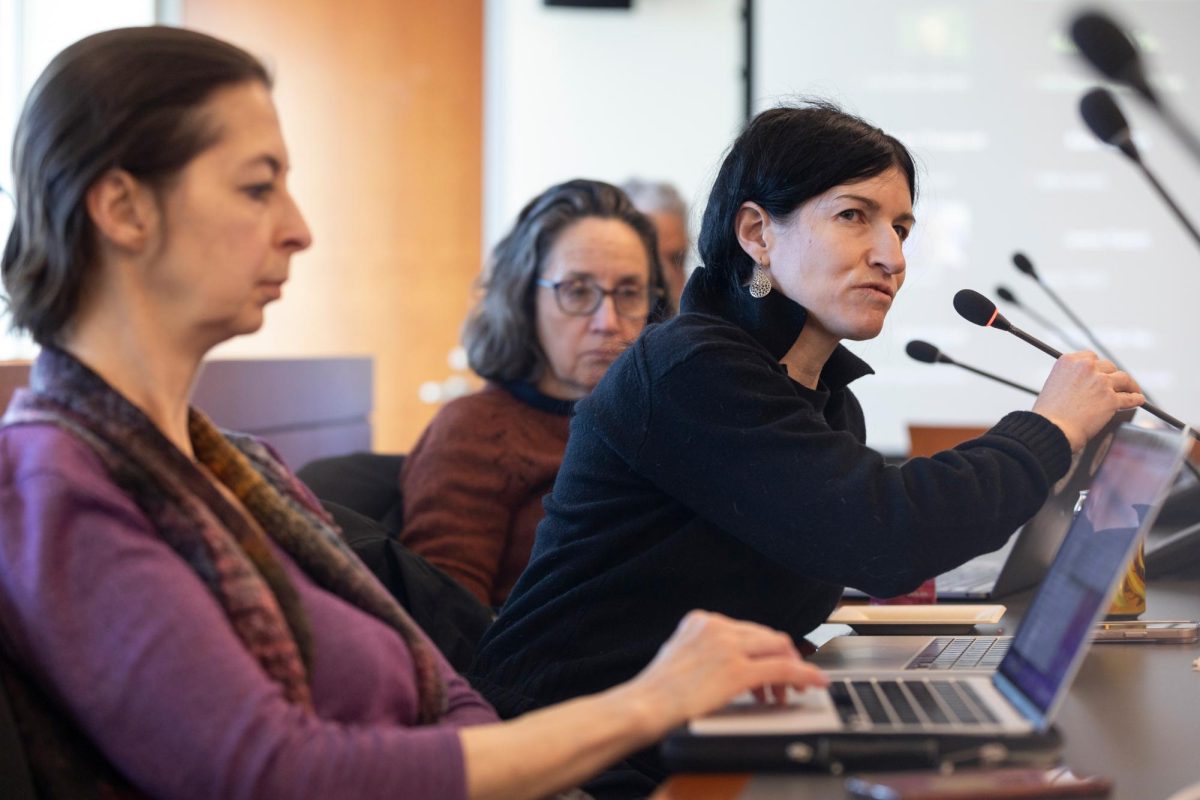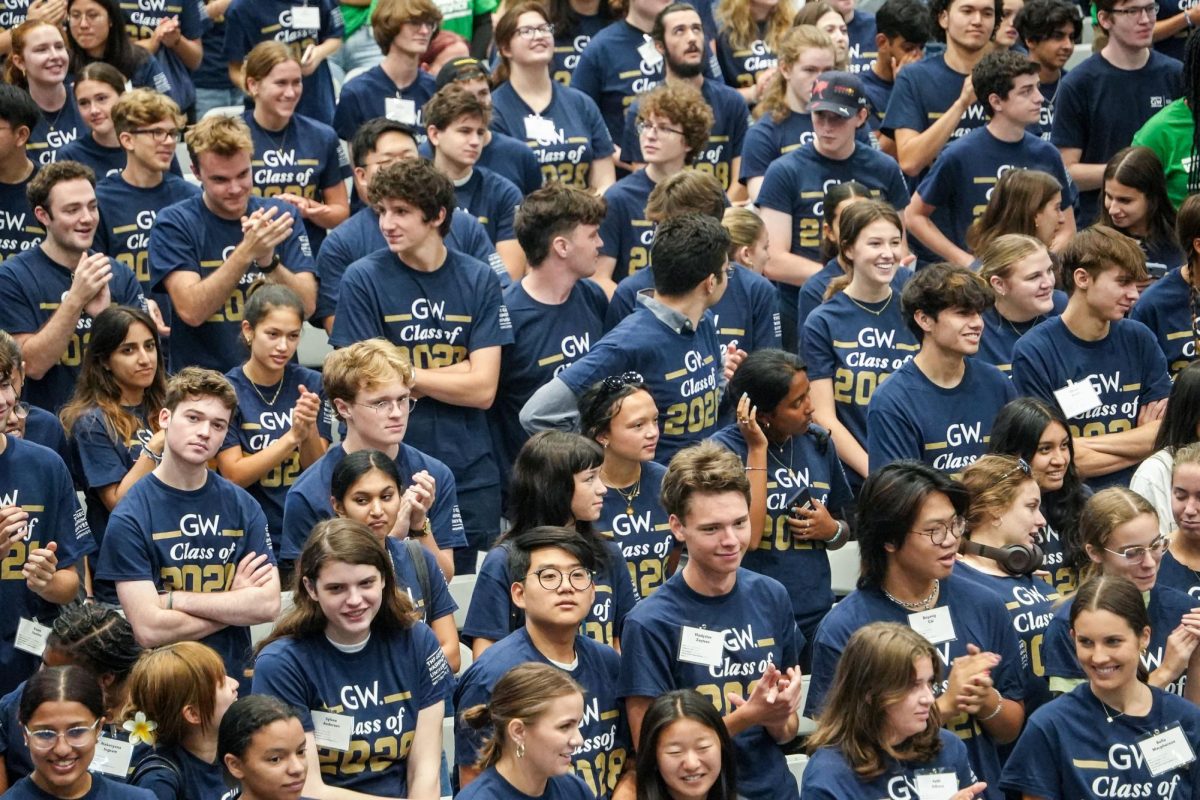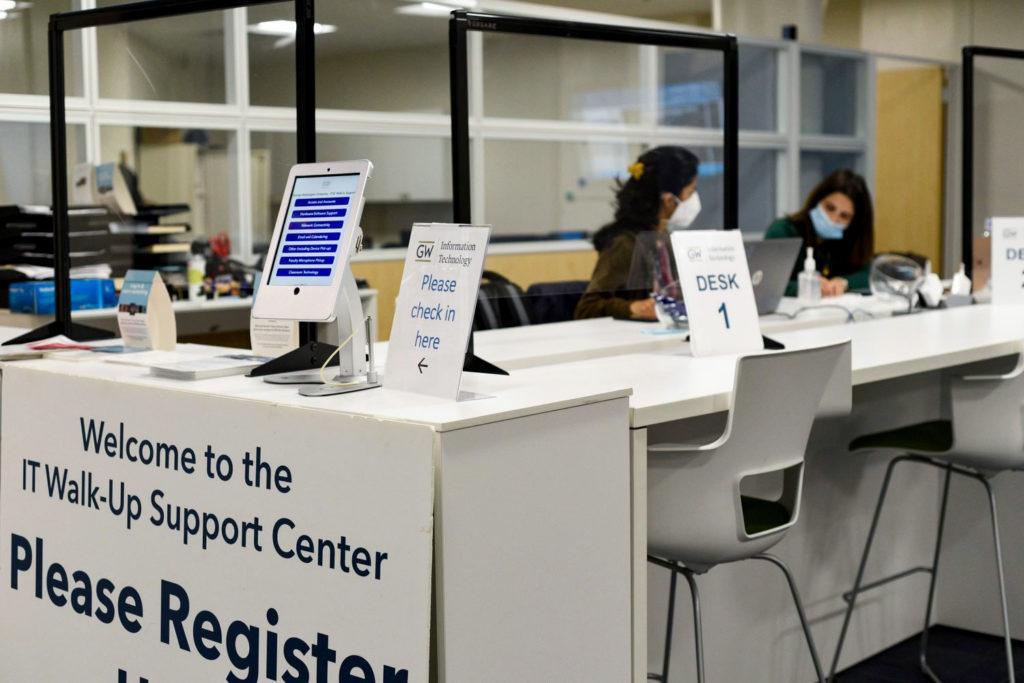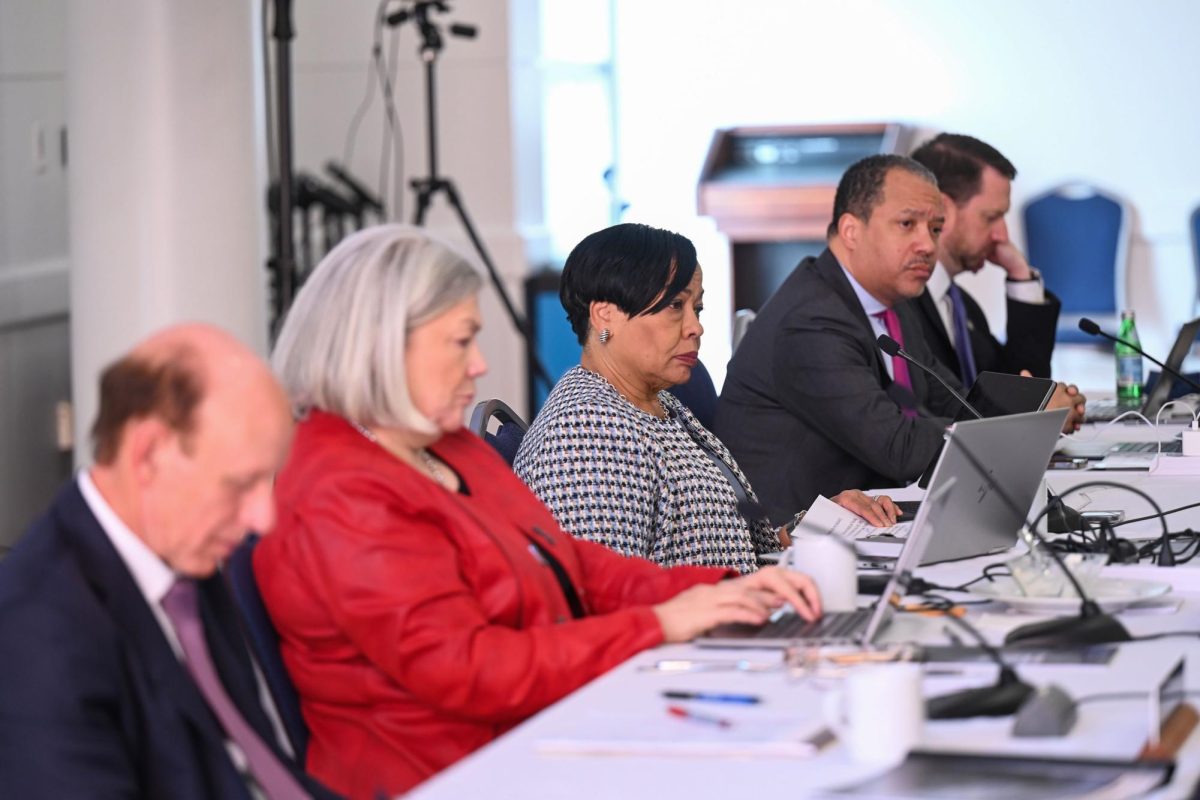As the University’s second fully online semester comes to a close, faculty say stress from the COVID-19 pandemic has caused their overall mental health to decline over the past academic year.
Half a dozen faculty members said learning and teaching have become more difficult over the past year, taking a toll on their mental health given the virtual environment and stressors from the pandemic. Some faculty said the switch to the virtual learning environment has also forced a professional and emotional disconnect from the GW campus and community, while others said they thought administrators poorly communicated plans for the future and failed to formulate clear academic policies, which contributed to their anxiety.
Shira Robinson, an associate professor of history and international affairs, said faculty operated with an intense professional and personal pressures throughout the pandemic because of a fear of contracting the coronavirus, caregiving and family responsibilities, isolation amid virtual learning and overall uncertainty about the future.
“People have been living under an existential, low-grade or high-grade stress level since last March,” Robinson said. “People were worried about getting sick, people were worried about their family members being sick or themselves being sick, people were worried about money if they or their parents lost a job.”
Robinson said the number of students who need or ask for extensions or accommodations for assignments has climbed significantly, contributing to the pressures that faculty face with grading and class organization that caused her to experience delays in grading. She said the number of cases requiring accommodations or extensions have gone from a few students per lecture before the pandemic to almost 50 percent of the classes – about 20 to 40 of her students total.
“More students were struggling than I’ve ever seen before,” she said.
Benjamin David Hopkins, a professor of history and international affairs and the director of the Sigur Center for Asian Studies, said he has felt “total alienation” from GW as an institution throughout the pandemic because he hasn’t seen an “acknowledgement” by GW leadership for the work faculty do and the support they give to students.
“I would characterize staff and faculty morale as generally low, and I think that is in part the consequences of the pandemic, which everybody’s struggling with,” Hopkins said. “I think it’s in part, a consequence of the institutional culture at GW – the institutional alienation and disconnect – I think is widespread amongst both faculty and staff.”
He said officials also changed due dates for faculty annual reports, which has served as another stressor on faculty. He said the reports are a sizable document compiled by faculty outlining their research and accomplishments for the year, generally due to department chairs by early June, but Hopkins said officials unexpectedly advanced the deadline for most faculty to mid-April.
“I think a lot of faculty feel we get these kind of bland, multi-paragraph emails from the GW leadership that say, ‘We appreciate you,’ and that’s the level of support that we’ve been given through the pandemic, which I think is almost bordering on insulting,” Hopkins said.
Kathryn Kleppinger, an associate professor of french and francophone studies and international affairs and the Faculty Association’s treasurer and secretary, said the announcement about annual reports “really impacts” faculty and department chairs because it disrupted the predicted faculty workflow and overall evaluation schedules. She said officials told faculty they moved up the due dates for the reports to determine faculty raises and wage increases earlier than usual, but it also caused more stress for professors.
“We’re essentially being told that we should be happy because this is good news, but it threw a wrench in many colleagues’ work flow plans without any specifics on the benefits of doing so,” Kleppinger said in an email.
Kleppinger said some of the stress and mental health issues from faculty stem from a lack of communication on policy and future planning by administration officials.
“I asked President LeBlanc in a faculty meeting, I actually asked him a question point-blank, ‘What is the fall going to look like for us?’ and I got the same: ‘We’re in a holding pattern and waiting to hear what D.C. tells us,’” she said. “There’s a lot of unknowns and it’s like ‘How do you want me to teach?’”
Officials have consistently maintained that campus will reopen in the fall semester “to the fullest extent possible.”
David Rain, an associate professor of geography and international affairs, said the state of mental health among faculty and staff is “a lot worse” compared to the beginning of the pandemic due to the general feeling of “isolation” and separation from campus.
“It’s like a ‘Groundhog Day’ situation,” Rain said. “You wake up, you go for a walk and you work on your quizzes and you read your emails and it’s just the same everyday.”
Rain said faculty morale and mental health should improve as faculty can start returning to work in their offices and communicate directly with students during the summer and fall. He said “we’ve all lost our central place” and hopes that more faculty will be able to return in person to their departments during the summer and fall semesters.
Rain said he was “very upbeat” about the University’s plans for the summer and fall so far. He said he’s “cautiously optimistic” about the future at GW, given the general loosening of coronavirus restrictions in places like Maryland and the District and the recent Centers for Disease Control and Prevention guidance on mask-wearing, which says masks aren’t needed for fully vaccinated people indoors and outdoors.
“I hope – fingers crossed – that we will go back to a more normal situation, probably early in the fall,” Rain said. “Everyone interprets what Doctor Fauci says, and he seems to be cautiously optimistic about that. But no one wants to take any chances.”
Clara Duhon and Baxter Wareham contributed to reporting.











